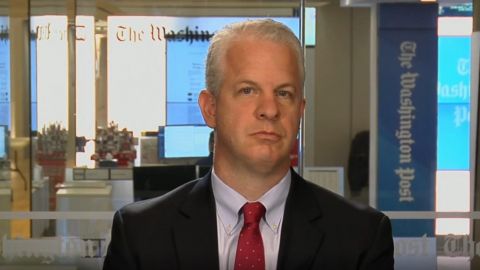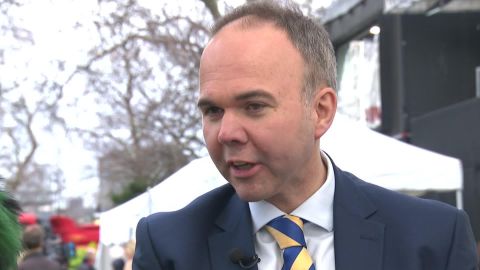Read Transcript EXPAND
CHRISTIANE AMANPOUR: So what do you make of today’s result then?
HELLE THORNING-SCHMIDT, FORMER DANISH PRIME MINISTER: This is a very bad result. It’s a very bad result for Labor. And I think that this shows that at various moments in time over the past couple of years, there has been opportunities to actually get a compromise, find a good deal, not only with the European Union, but also in the Parliament here in the U.K. And I do think that they should have jumped on those chances, because what Labor’s ended up with now and what the country has ended up with now is basically a very, very hard Brexit, the hardest Brexit possible, and a Tory government which seems to be quite a solid Tory government, where they will have a lot of party discipline. Instead, we could have had a softer Brexit and the chance of a Labor government next time around.
AMANPOUR: Well, this is interesting, because I didn’t actually say when I introduced you that you are married to Stephen Kinnock, who is the son of Neil Kinnock, the former leader of the Labor Party. And he kept his seat in this election. And, obviously, you have been campaigning with him. So it must be desperate for him, for you, for the Labor Party to see this implosion.
THORNING-SCHMIDT: Yes, I mean, we are — I mean, obviously, my husband, Stephen Kinnock, he had a very good result last night. He had 53 percent of the vote, which was a very good result in a leave voting constituency. So, of course, we were very happy with that. And he was very proud that they had decided to send him off to Westminster again with that backing. But we are also very gutted, because the Labor Party is now at a size where they will find it very hard to find themselves internally, but also to gain influence on what really matters, I mean, Health Service, all the services, where people are screaming for improvement. That will be very, very hard.
AMANPOUR: So, talk to me now as if you were a European prime minister. What now happens? Because “Get Brexit done” is just a slogan. You have got the divorce is going to happen. But what happens? What can Britain, Boris Johnson, expect from European leaders? Is it going to be difficult?
THORNING-SCHMIDT: Yes, first of all, I think there is a slight sigh of relief in the European Union amongst the 27, because they have felt that this is taking so long, and they have been the hostage to internal British politics for so long. So they have found it very difficult to move on with things that are also important to the European Union, like our border control, like cyber-crime, terrorism, climate change, you name it. There’s so many issues that the European Union needs to solve right now. And they will feel that now they can actually get on with this with a new commission and the new Parliament. So that’s the first thing. But, of course, Brexit — get Brexit done is a very hard thing, because what we have now is only the leave deal. I’m sure Boris Johnson will get that through Parliament very, very soon. But what is left is, what is the future relationship with the European Union? What is the future trading relationship with the European Union?
About This Episode EXPAND
A comprehensive analysis of the U.K. election and Brexit, with input from Mark Landler, Afua Hirsch, Simon Fraser, Gavin Barwell and Helle Thorning-Schmidt. Plus, Craig Whitlock discusses his investigation into the war in Afghanistan for the Washington Post.
LEARN MORE



